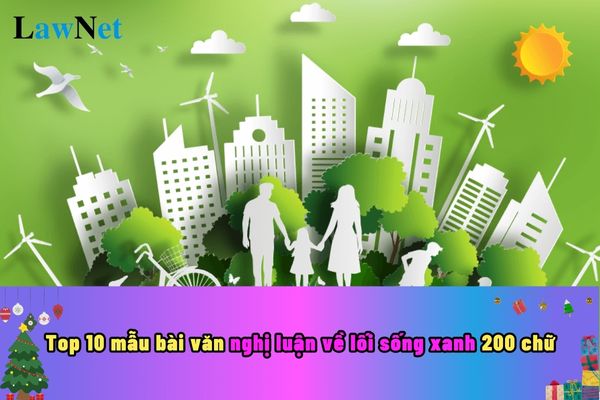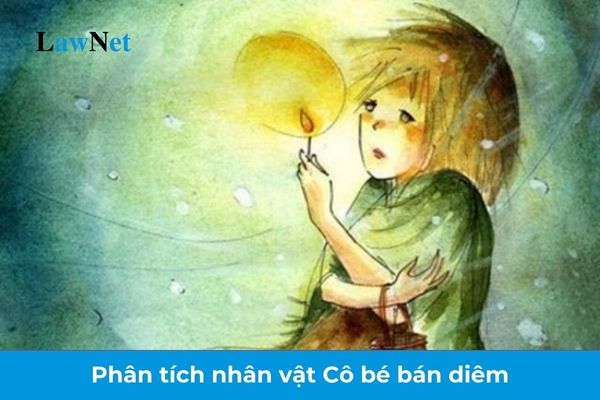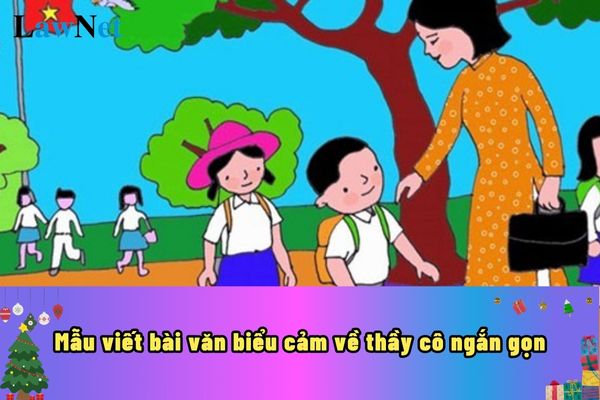Vietnam: What are the guidelines for writing an expressive essay on people or events in the 7th-grade Literature curriculum? What learning outcomes are required for speaking and listening content in the 7th-grade Literature curriculum?
What are the guidelines for writing an expressive essay on people or events in the 7th-grade Literature curriculum in Vietnam?
[1] Clearly Understand the requirements of an expressive essay
An expressive essay is a piece of writing aimed at expressing your feelings and thoughts about a person, object, event, or phenomenon. The goal is to help the reader feel your emotion and attitude towards the subject you are writing about.
[2] Structure of the essay
An expressive essay typically follows a three-part structure: Introduction, Body, and Conclusion.
- Introduction:
Introduce the subject (person or event) you will be emoting about.
You can start with a short story, a question, or an appealing introduction to capture the reader's attention.
- Body:
Describe the subject you want to express emotions about (such as describing the appearance, personality, or actions of the person or event).
Express emotions: Convey your feelings towards the subject. You may express joy, admiration, affection, or sadness, regret, etc.
Explain the reasons for your feelings. This helps the reader better understand your emotions and also helps clarify the issue you are writing about.
- Conclusion:
Summarize your feelings about the subject.
You can draw out a lesson or message you want to share.
3. Notes when writing an expressive essay
Choose a subject close to you, such as a loved one, a friend, or a significant event in your life. This makes it easier for you to express your emotions and thoughts.
Use emotional language: Feelings in the essay can be conveyed through vivid, strong language, or through comparisons and metaphors.
Choose appropriate emotions: You should express emotions that suit the subject you describe. For example, if you are writing about a close friend, your emotions may be intimacy and affection, whereas if writing about a sad event, your emotions could be regret or sadness.
Express your emotions sincerely: A sincere and deep expressive essay will easily touch the reader's heart.
4. The sample expressive essay about a person
Introduction: Every time I think of my grandfather, a feeling of immense love and respect fills my heart. He is someone I always admire and learn much from.
Body: My grandfather is an elderly man, with hair that has turned white but he remains very agile. Despite being over 70 years old, he still wakes up early every morning to exercise and take care of the garden in front of the house. His white hair and the wrinkles on his face always make me feel peaceful and secure.
He has a gentle nature, always willing to help those around him. I remember the evenings when he would often sit and tell me stories about his youth, about the challenges he faced in life. Each of his stories made me feel profound and cherish him more.
The love my grandfather dedicates to the family, especially to me, always makes me feel fortunate to have such a wonderful grandfather. He never asks for much, only wishes for everyone to be happy and love each other.
Conclusion: My grandfather is a shining example of sacrifice and boundless love for the family. I will always remember the lessons he taught and keep his image in my heart forever.
Note: This guide on writing an expressive essay about people or events in 7th-grade Literature is for reference only!

What are the guidelines for writing an expressive essay on people or events in the 7th-grade Literature curriculum in Vietnam? What learning outcomes are required for speaking and listening content in the 7th-grade Literature curriculum? (Image from Internet)
What are the perspectives on developing the 7th-grade Literature curriculum in Vietnam?
According to the General Education Program in Literature issued with Circular 32/2018/TT-BGDDT, perspectives on developing the 7th-grade Literature curriculum in Vietnam are as follows:
The Literature curriculum adheres to the basic regulations stated in the General Program while emphasizing several perspectives:
- The Literature curriculum is developed on theoretical and practical foundations, updates on research achievements in education, psychology, and teaching methodology of Vietnamese literature; achievements in literature and linguistics research; achievements in Vietnamese literature across various periods; experiences in developing Vietnamese literature curricula, particularly from the early 21st century until now, and international trends in curriculum development in general, and the Literature curriculum in particular over recent years, especially from developed countries; societal practice, education, economic conditions, and Vietnamese cultural tradition, especially the diversity of students in terms of regions, conditions, and learning abilities.
- The Literature curriculum focuses on training communication skills (reading, writing, speaking, and listening) as a central theme throughout all three education levels to meet the program's capacity-oriented direction and ensure coherence and continuity across all grades and levels. Fundamental, foundational knowledge about the Vietnamese language and literature is formed through activities in comprehending and creating texts; directly serving the requirement of training in reading, writing, speaking, and listening skills.
- The Literature curriculum is developed with an open approach, reflected in not specifying detailed teaching content but stipulating the outcomes needed in reading, writing, speaking, and listening for each grade; delineating some basic, core knowledge about the Vietnamese language, literature, and some texts with a significant, crucial position in national literature as mandatory content for students nationwide.
- The Literature curriculum meets both the innovation requirements and emphasizes inheriting and enhancing the strengths of existing Vietnamese literature curricula, especially the current one.
What learning outcomes are required for speaking and listening content in the 7th-grade Literature curriculum in Vietnam?
Under the General Education Program in Literature issued along with Circular 32/2018/TT-BGDDT, the learning outcomes required for speaking and listening content in the 7th-grade Literature curriculum in Vietnam include:
(1) Speaking
- Clearly present opinions on a social issue; state opinions and arguments clearly; use convincing reasons and evidence (information technology may be used to enhance presentation effectiveness).
- Know how to present a short introduction about a book (based on personal choice): provide the reader with the most essential information; state the book's themes or topics and some specific features of its artistic form.
(2) Listening
- Listen and summarize the content of another's presentation.
- Grasp the main content of group discussions and exchanges and be able to present it.










- Vietnam: What is the value of Avogadro's number in Chemistry? What does Chemistry study?
- Vietnam: What are the sample letters to friends for 4th-grade students? How many periodic tests do 4th-grade students have to take in a school year?
- Vietnam: What are the 06 sample introductions of an essay on the poem "Đoàn thuyền đánh cá" for excellent students? What are the objectives for Literature at the upper secondary level?
- What is Renaissance Culture? In Vietnam, what is the grade at which students will learn about Renaissance Culture?
- Vietnam: What are the sample letters to relatives for 4th-grade students? What are the writing skills required for 4th-grade students?
- Vietnam: What are the sample social argumentative essays on responsibility in work under the 10th-grade Literature curriculum? How many lessons in the school year does the 10th-grade Literature curriculum include?
- Vietnam: What is the schedule for returning to universities after the Lunar New Year 2025?
- Vietnam: What are the top 10 200-word sample argumentative essays on green living? In what category are the learning results of 7th-grade students with a GPA of a subject of 6.5 assessed?
- Vietnam: What are the sample argumentative essays on an issue to be solved between humans and water resources? What learning outcomes are required for writing practice in the 7th-grade Literature curriculum?
- Vietnam: What are the top 03 sample argumentative essays on a human vice in society? When do students take the 1st-semester final exam for the 2024-2025 school year?

